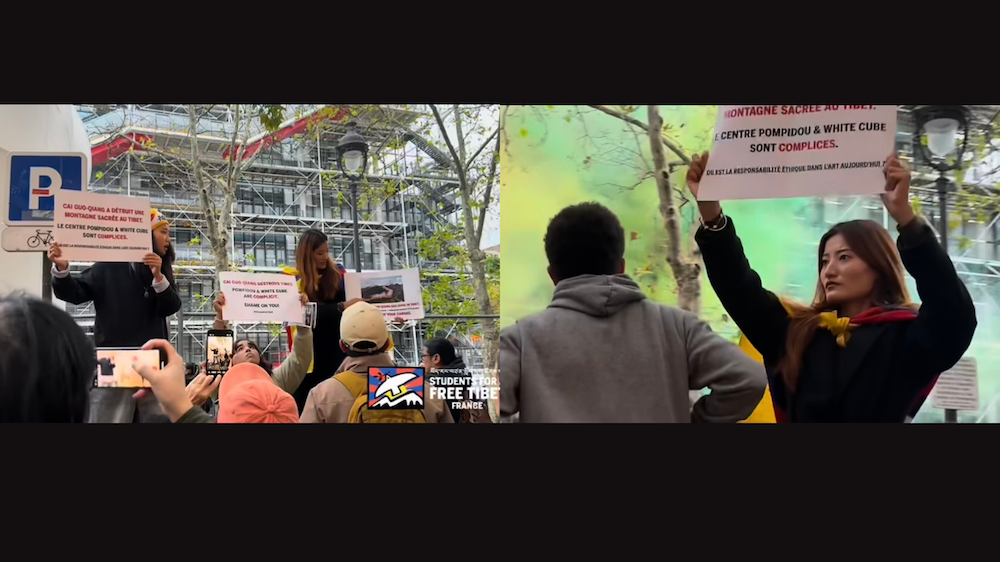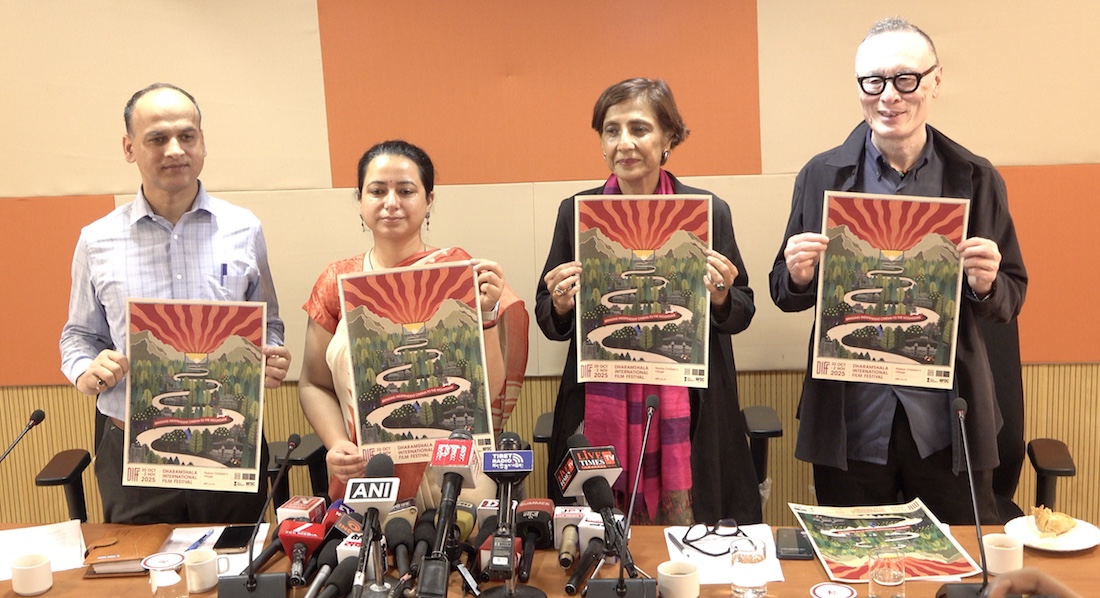TERENCE CHEA
SAN FRANCISCO (Associated Press)- If China frees any political prisoners before its president’s first official visit to the United States next week, chances are John Kamm will have played a role in this goodwill gesture.
The former chemical company executive, who now heads the nonprofit Dui Hua Foundation in San Francisco, has emerged as a key intermediary between Washington and Beijing on human rights matters. When a jailed dissident is released or sent into exile, the announcement often comes from Kamm.
Over the last 15 years, Kamm has helped persuade China’s Communist leaders to show clemency toward hundreds of prisoners of conscience – including democracy activists, labor leaders, Tibetan monks and Catholic priests – and get them access to lawyers, family and medical care.
Last year, Kamm was awarded a $500,000 “genius grant” from the MacArthur Foundation for his work.”If we’ve achieved nothing else, I think we’ve impressed on the Chinese government that people around the world care about individuals,” said Kamm, 54, who once headed the American Chamber of Commerce in Hong Kong.
Before Secretary of State Condoleezza Rice’s visit to China this year, Kamm helped arrange for the release of Rebiya Kadeer, a prominent Muslim Uighur businesswoman who was jailed on national security charges for mailing newspapers to her activist husband abroad.
And as China prepares for President Hu Jintao’s visit to Washington in early September, Kamm and other human rights advocates are working behind the scenes for other Chinese prisoners in hopes of a similar gesture.
China’s economic boom has lifted millions out of poverty, attracted billions in foreign investment and furnished the masses with cell phones, computers and even cars. But that explosive growth hasn’t brought about major political change in China, and people deemed a threat to the one-party state are routinely jailed.
The Chinese Justice Ministry, which oversees China’s prisons, declined to say how many people are serving terms for political offenses. But Kamm estimates there are between 15,000 and 25,000 political or religious prisoners in China, about half jailed for their links to the banned Falun Gong spiritual movement.
“The pace of political change has not kept up with the pace of economic change,” Kamm said. “China’s economic development, in my opinion, has not translated into improvements in civil and political rights.”
Kamm and his small band of researchers scour China’s newspapers and Internet sites in search of names of citizens jailed for political or religious reasons. Then he presents those prisoner lists to Chinese officials asking for information, better treatment or reduced sentences.
“If you ask about a prisoner, they become an important prisoner in the Chinese system,” said Kamm. “If you know that simply asking about a prisoner helps them, why not ask about as many as possible?”
Dui Hua, which means “dialogue” in Mandarin, distributes publications that typically describe 25 previously undisclosed prisoner cases to the U.S. State Department, foreign governments, journalists, academics and human rights groups. He also gives the lists to Chinese officials, many of whom are eager to see what official information has been declassified and what foreigners can find out.
“He tracks down these people who get lost in a nontransparent, highly politicized system and keeps that information in front of the international community,” said Mickey Spiegel, a senior researcher for the Asia division of Human Rights Watch.
Xu Wenli, a well-known pro-democracy leader who credits Kamm with helping him get released early from prison – twice – said Kamm has earned the trust and respect of Chinese officials who are reluctant to accept prisoner lists from human rights groups or officials in Washington.
“If they give in, it’s a loss of national pride,” said Xu, 62, now a visiting scholar at Brown University. “But if John Kamm has a list that’s exactly the same, it’s much easier for the Chinese government to accept.” Kamm, who is of French-German ancestry but speaks fluent Mandarin and Cantonese, lobbies the Chinese government using the skills he learned as a businessman – persuasion, negotiation, giving face and leveraging “guanxi,” or relationships, with influential Chinese and American officials he’s cultivated over the years.
Each year, Kamm makes about four trips to China, where he visits prisons, meets with justice ministry officials and closely reads provincial and legal newspapers that have published prisoner cases.
Sharon Hom, who heads the New York-based advocacy group Human Rights in China, said Kamm’s direct lobbying helps individuals but doesn’t address the deeper problem.
“The relationship, backdoor approach does not contribute to the kind of systemic reform and building of rule of law that’s ultimately needed for real institutional protections for human rights,” Hom said.
Kamm counters that his advocacy for individuals helps promote transparency, accountability and humane treatment in Chinese prisons. He points out that earlier this year, China for the first time voluntarily released a list with names of 56 political prisoners.
The son of a traveling whisky salesman and a secretary, Kamm majored in anthropology and studied Chinese at Princeton University before working briefly as a journalist in Hong Kong. After China and the U.S. normalized relations in 1979, he rose through the ranks at Occidental Chemical Corp., eventually managing its Asia operations and living in a posh home on Hong Kong’s Victoria Peak.
His outlook changed on June 4, 1989, when Chinese soldiers opened fire at student demonstrators in Beijing’s Tiananmen Square.
“I thought China was on the right track, and Tiananmen was this incredible awakening,” Kamm said. “The system is there and when challenged, it crushes.”
Kamm’s unlikely second career began the next year when, before leaving Hong Kong to testify on Capitol Hill in favor of maintaining trade with China, he pressed Chinese bureaucrats at a private banquet to release a student protester. They “went nuts,” Kamm said. But soon thereafter, Yao Yongzhan walked out of prison.
“That was the first time I raised a prisoner’s name,” Kamm recalled. “I said, ‘Hmmm, This is interesting. Could it be that a business leader could have that kind of impact?'”
Kamm resigned from Occidental Chemical, started a consulting firm and used his profits to finance his human rights work. Skeptics said he would fail to make a difference and meanwhile destroy his business.
But Chinese officials remembered Kamm’s role in convincing U.S. lawmakers to continue the trade relationship. They agreed to answer his prisoner inquiries.
“I would give them the political reasons why Americans cared about these people,” Kamm said. He told them, “‘If you want to impact public opinion, show a softer face, show clemency.'”
The MacArthur grant has made it easier to continue such work, said Kamm. He took a big salary cut when he left the business world, but has no regrets.
“Money can’t buy the feeling of having helped save a life,” Kamm said. “It all boils down to a simple equation. You help save a few lives, and in the process you save your own.”









